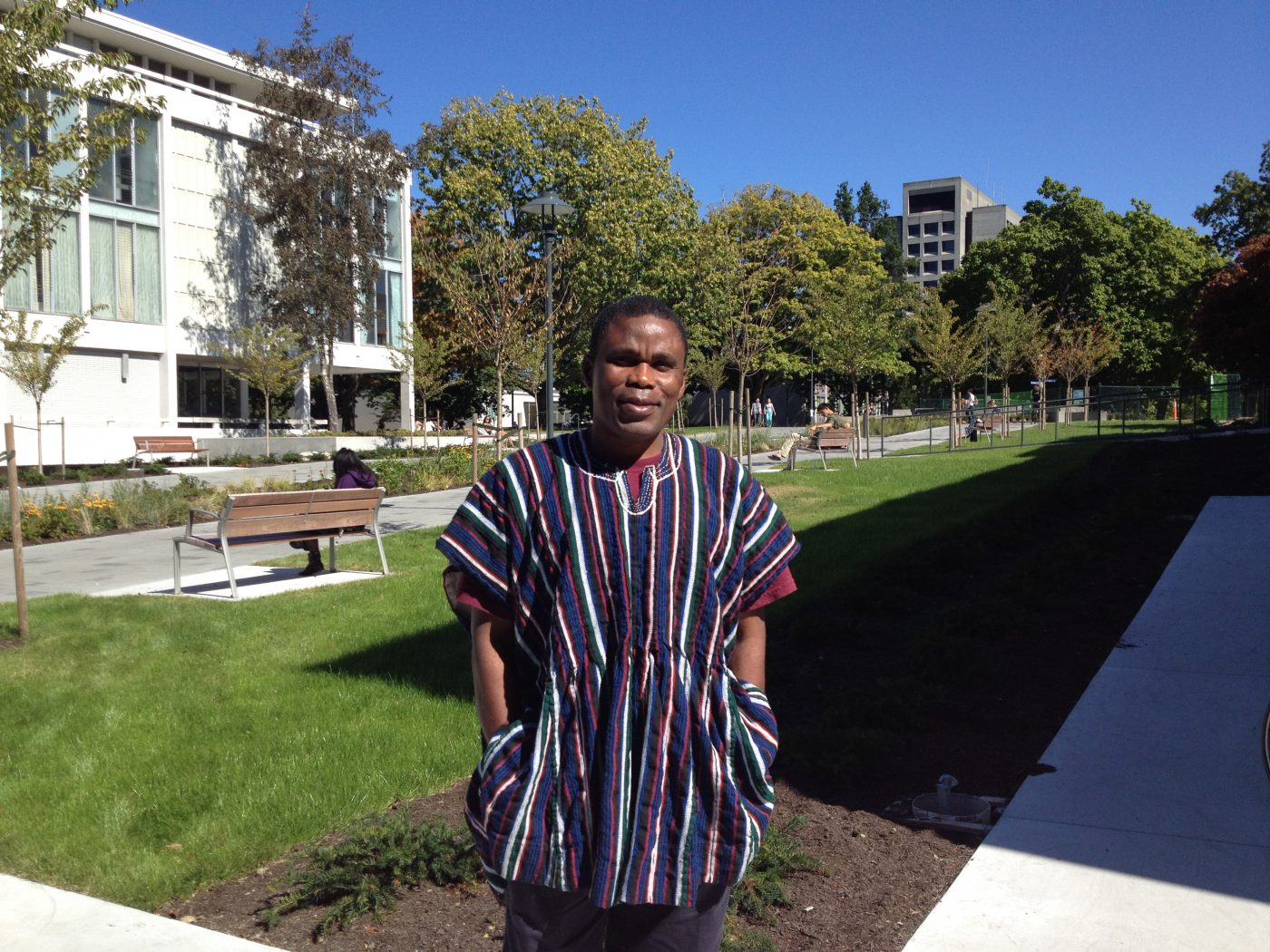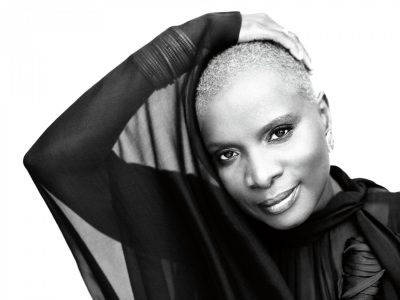- News
- Q & A with Dr. Kofi Gbolonyo, Part One
Q & A with Dr. Kofi Gbolonyo, Part One

In conjunction with our presentation of Angélique Kidjo, we spoke with Dr. Kofi Gbolonyo, Ghanaian musician, Assistant Professor of Music (Ethnomusicology) and Director of the UBC African Ensemble.
Here, Dr. Gbolonyo shares his thoughts about how music is experienced in both his and Kidjo’s native West Africa, and what he thinks about the importance of music in education.
What role does storytelling play in the music of West Africa?
Kofi Gbolonyo: Storytelling and songs are integral parts of the concept ‘music’ in many African traditions. A traditional West African musical performance can be said to be a storytelling in its own right since music, from the indigenous perspective of many African traditions, is a reenactment of the peoples everyday life experiences and activities, which in itself is a story.
Without a ‘story’ a song may be meaningless in a traditional West African context. Stories may be chanted or sung, along with musical accompaniment on a certain instrument. Songs on the other hand often serve as ‘witnesses’ to events in a story; as unique features of characters in a story; as signals of acts and actions at various points in a story; as means of communal participation and validation of acts in a story; and as a point of ‘rest’ for the storyteller. To a musician, a story may serve as a building block for the structure of a song without which the song is nothing but a sonic entity. Musicians, therefore, in an African traditional perspective are storytellers.
Storytelling, like music making in African cultures is not a monologic act (soliloquy) but a dialogic one. Call and response forms, found everywhere in Africa, entail a caller or soloist who intones the song/story, and the community—the listeners, chorus, audience who respond, agree underneath the song, serve as witness to the story underscores the dialogic character of both storytelling and singing in African cultures. The act of telling a story is an art and so is music. Music is not just a creative art but an expressive one just as storytelling. Both need each other to have substance and to be meaningful to their audience.
With the understanding that West Africa and Canada are very different geo-cultural regions, what are some distinctions between how music is experienced in both places? Is live music presented or experienced differently?
KG: Music as an active communal experience seems to be more prevalent in West Africa than in Canada. From this perspective there is often instant active participation in a West African’s musical experience irrespective of the musical style, context, and time. That may not be the same experience in a Canadian’s experience. A Canadian musician/performer/teacher Curtis Andrews has spent many years studying and playing West African Music and makes this observation about the way music is experienced in West Africa and Canada: “The major differences relate audience reaction/participation. In Canada, audiences are generally subdued, like to sit and watch, not participate/clap until the end of a song; reluctant to dance etc. Nightclub context is an exception (sometimes). But concert halls come with certain behavioral tendencies as a rule, as soon as you enter them. In terms of live music, in Canada the venue can determine much of how music is received, whereas in West Africa, regardless of venue, people will behave as the music dictates to them…concert hall or village performance.”
Art and education are obviously great passions of yours (and ours, too). How important is the role of music in education today?
KG: In my traditional culture everybody takes part in music making—where music includes dance, drama, storytelling and other artistic forms. It is an experience that I think is as natural as everyone being able to talk and walk in a community and not being labeled. If talking and walking are accepted as important social activities then music should be as well. Beside its positive social impact on the individual and society, music is a vital and effective tool in the education of the individual and society in all other spheres of human endeavor. Particularly in today’s youth and culture where social relationships and connection is reduced to an electronic device only as big as my thumb, music comes as a tool in educating the youth and as a resource to reconnect with real social life. The day the human race completely loses the ability to make and enjoy music is the day the human race loses its sanity. The importance of music in education – though clearly known now, but continuously neglected – cannot be overemphasized.
Stay tuned for Part Two, where Kofi dives deeper into the music and accomplishments of Angélique Kidjo.

